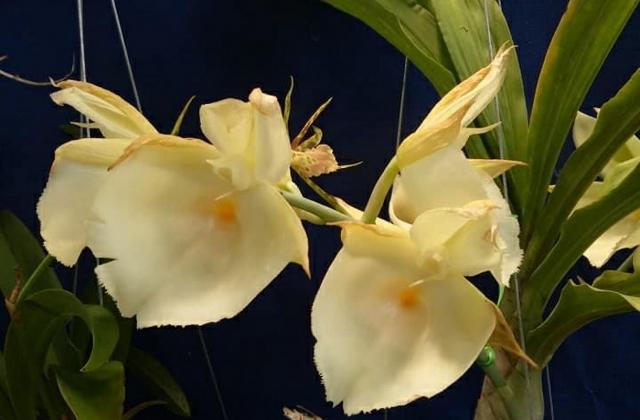How Does Orchid Food Work?

Orchids need certain foods in order to grow and thrive. Orchids are plants that bloom for one reason only. They are “closed” plants. They require a certain amount of nutrients each day in order for them to grow. This is called their “food supply.”
Orchids use photosynthesis to convert sunlight into food for the plant. In nature, this process occurs in the leaves of the orchid. The chlorophyll in the leaves is what supplies the plants with this form of energy. When the orchid is young, it relies on this for all of its food. As the orchid matures, it will switch to photosynthesis of carbon dioxide in the air.
When you’re starting an orchid, it’s wise to give it some extra nutrients to help it grow. This is often referred to as orchid fertilizer. There are many different types of orchids, so you will have to do your research to find which ones you’re growing and which ones are best suited to your type of orchid.
Most orchids require four to five cups of orchid fertilizer each week. This can be in the form of soil or pellet food. Both work well. Before applying fertilizer, make sure the orchid has been completely established. The roots must be in the ground before you begin. If you plant your orchid seed indoors, make sure they are also in the soil before you begin feeding it.
There are many types of orchids, which means you will have to learn about them. Some types are more difficult to care for than others, so you might have to purchase special nutrients to help your plants grow. Most gardeners will find that there are enough nutrients in most plants to help them thrive, provided the plants get their required daily dose of orchid fertilizer. Watering is not necessary when growing orchids. Just make sure that the soil is always moist.
Some orchids don’t do well in pots, but if you grow them in a larger container you shouldn’t have any problems. You can use a plastic pot, but make sure that it’s large enough for your orchids to grow comfortably. Orchids love lots of sun, but some varieties don’t do well in heavy sunlight. The amount of light the plant gets is often regulated by the leaves on the plant. If the leaves become red and droopy, water the plant a bit to keep the leaves green and healthy.
One of the best nutrients for orchids is nitrogen. It’s also true about calcium. Both of these are plant nutrients that your orchid needs, but you probably already have some in your house. The good news is that you can get other nutrients, such as copper and magnesium, from different parts of the soil. It might take some experimentation to find which combination gives the most vibrant results.
So, how does orchid food work? It might seem complicated, but it really isn’t. All orchids are fairly easy to care for with the right approach, and once you get the hang of feeding your plants the nutrients they need, there is very little else to do. Your garden should flourish, and you and your friends and family will all be talking about how great your orchids look.
The only other concern is watering. You’ll need to water your orchid’s about twice a week, especially during the hotter months of the year. Excessive watering can cause your orchids to wilt. Just keep in mind that not all varieties are the same, and orchids that have become accustomed to an adequate water level may need more watering down the road.
How does orchid food compare with fertilizer? It really depends on the type of orchid you have. Some require much more frequent feedings than others. Most will actually do better on a food that is just a little bit richer than the stuff you put on your lawn every day. This way, they will not suffer from too many deficiencies.
Now that you know how does orchid food work, there is no reason that you should not begin feeding your orchids. If they are healthy, that is all that matters. However, if you have recently added a new plant to your yard, you might want to check the soil and make sure that it is not contaminated. Then you can get started and watch your orchids grow into beautiful plants that will bring you joy for many years to come.